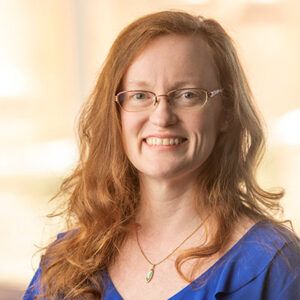Help Build a Sustainable Energy Future
Under growing pressure from environmental impacts, resource constraints and increased demand from a developing world, global energy systems are shifting towards a more sustainable energy future. Channel your passion for energy, engineering, and the environment and equip yourself with the skills required to engage in this global energy transformation with an online master’s in sustainable systems engineering. The University of Wisconsin–Madison’s online Master of Engineering: Sustainable Systems Engineering (SSE) program focuses on preparing you to understand the policy, science, engineering and economics of tomorrow’s clean energy systems and sources.How You’ll Benefit
The SSE program builds on the strengths of UW–Madison as a leader in engineering, energy and environmental sciences. Students in the SSE program are attracted to this field for a variety of reasons. Some are looking to advance within their existing organization and want to gain additional knowledge and skills. Others are looking to pursue their personal missions and break into renewable energy or energy efficiency industries such as energy service companies, energy efficiency consulting, renewable energy design, utilities, public service or start-up firms. When you complete the program, you will not only have an understanding of tomorrow’s clean energy principles, but you will understand the structure of today’s conventional energy systems, positioning yourself as a navigator in the ongoing clean energy transition.Learn more about this program!
Watch our Info session:
Testimonials
“I will never forget Joy Altwies’ Building Efficiency class when she assigned readings from ASHRAE’s Achieving Zero Energy for K-12 Schools. I read the guide like a novel and later decided that the school system is where I need to be. Fast forward one year later, and here I am!” —Karly Pulido, Hialeah, FL, SSE Class of 2021
“The most valuable part of the program was adding sustainability tools, knowledge, and experience to my background as an engineering professional working in the design and construction of buildings.” —Paul Mueller, Naperville, IL, SSE Class of 2021
“This degree gives me the ammunition to transition within the energy industry. As an individual currently in O&G, now the renewable sector gives me call backs.” —Trenton Mullin, Minot, ND, SSE Class of 2021
30 credits
2 – 3 years
$1300 per credit
Resident and non-resident
June 15*/Nov 1
*Late applications accepted through July 1 Fall/spring application deadlines
Company Profiles
Explore companies that embody the types of career paths open to graduates of our Master’s of Sustainable Systems Engineering program.
Read More
- Course and Degree Plan
- Learning Online
- Faculty & Staff
- Admission Requirements
- Tuition and Financial Aid
Academics
Curriculum Courses in the Master of Engineering: Sustainable Systems Engineering (SSE) program are designed to provide foundational knowledge in the policy, science and economics of energy systems and sources. You will apply this knowledge to both energy efficiency and renewable energy production within the broad context of global sustainability. You will learn to wield your new knowledge effectively through professional development courses and pull it all together into a final Capstone project. Degree Requirements The SSE degree program consists of 30 credits, including a series of foundational and applied courses, business and professional courses and a capstone project. The standard completion time is two to three years. Courses Courses range in topic from renewable energy systems to energy efficiency to sustainable building systems. Required Courses Science/Sustainability Courses (minimum 9 credits)- EPD 660 Core Competencies of Sustainability
- OTM 770 Sustainable Approaches to System Improvement
- BSE/ENVIR ST 367 Renewable Energy Systems
- GEOSCI/ENVIR ST 411 Energy Resources
- CIV 729 Environmental Sustainability Tools
- EPD 669 Sustainable Systems Engineering Capstone
- EPD 730 Sustainable Facilities
- ECE 355 Electromechanical Energy Conversion
- EPD 731 Energy Efficiency in Buildings
- EPD 690 Distributed Renewable Energy System Design (special topics)
- EPD 690 Sustainable Microgrids (special topics)
- CIV ENGR 535 Wind Energy Balance-of-Plant Design
- EP 602 Special Topics in EP: Sustainable Energy Challenges and Solutions
- EPD 639 Plastics Recycling and Sustainability
- EPD 701 Writing for Professionals
- EPD 702 Professional Presentations
- EPD 704 Organizational Communication
- EPD 706 Change Management
- EPD 708 Creating Breakthrough Innovations
- EPD/GEN BUS/MARKETNG 782 Marketing for Non-Marketing Professionals
- EPD/GEN BUS/MHR 783 Leading Teams
- GEN BUS/EPD/OTM 784 Project Management Essentials
- EPD/GEN BUS/MHR 785 Effective Negotiation Strategies
- Program Director: Joy Altwies, PhD, PE (read an interview with Joy)
- Graduate Academic Advisor: Karene Cary
- Alan R. Carroll, PhD
- Najoua Jouini, PhD
- James M. Tinjum, PE, PhD
- Giri Venkataramanan, PhD
- Scott Williams
Admission Requirements
Application Overview The admissions process has been designed to conduct a holistic review of your likelihood of success in the program. Decisions are based on your academic and professional background. To start the process, please read the admission requirements to determine your eligibility. If you have questions about your eligibility, please request an eligibility review by emailing our Graduate Academic Advisor Karene Cary. This email should include a copy of your current resume and informal transcripts. Applications are accepted for admission during the fall and spring terms. Applications are reviewed in the order received until the June 15 deadline for fall admissions and November 1 for spring admissions. Admission is competitive and selective. Therefore, applicants are encouraged to submit application materials prior to the deadline. Admission requirements for the Master of Engineering: Sustainable Systems Engineering (SSE) program are listed below. Exceptions to standard admission requirements are considered by the admissions committee on an individual basis.- A bachelor of science (BS) degree from a program accredited by the Accreditation Board for Engineering and Technology (ABET) or the equivalent.*
- A minimum undergraduate grade-point average (GPA) of 3.00 on the equivalent of the last 60 semester hours (approximately two years of work) or a master’s degree with a minimum cumulative GPA of 3.00. Applicants from an international institution must have a strong academic performance comparable to a 3.00 for an undergraduate or master’s degree. All GPAs are based on a 4.00 scale. We use your institution’s grading scale; do not convert your grades to a 4.00 scale.
- Applicants whose native language is not English must provide scores from the Test of English as a Foreign Language (TOEFL). The minimum acceptable score on the TOEFL is 580 on the written version, 243 on the computer version, or 92 on the Internet version.
- International applicants must have a degree comparable to an approved U.S. bachelor’s degree.
- GRE is not required. Applicants who have taken the test are encouraged to submit their scores.
- Technology costs for Internet course delivery
- Live web-conferencing
- Toll-free telephone line for the audio portion of conference calls
- Library use
- Use of the web-conferencing software for group project work for program courses
- Advising
- Technical support
- Access to campus computing resources
News
UW–Madison Online Graduate Engineering Programs Ranked 9th by U.S. News & World Report
MADISON, Wis.—UW-Madison’s online master’s degrees in engineering were ranked #9 in the nation by U.S. News & World Report. This is the eleventh year in the row that the online engineering programs, offered by the College of …
Faculty Spotlight: Najoua Jouini
Najoua Jouini, PhD, is faculty in the Master of Sustainable Systems Engineering (SSE) program with the University of Wisconsin-Madison's Office of Interdisciplinary Professional Programs. She shared her thoughts about why students should consider an online master’s degree, what she loves about the SSE program, her own career path, and the many career opportunities that exist for SSE graduates.
Staff Spotlight: Justin Kyle Bush
Justin Kyle Bush (he/him/his) is the graduate program coordinator for Manufacturing Systems Engineering (MSE), Engineering Data Analytics (MEDA), and Sustainable Systems Engineering (SSE). He supports all aspects of the student life cycle, including recruitment, admissions, …
- More News



